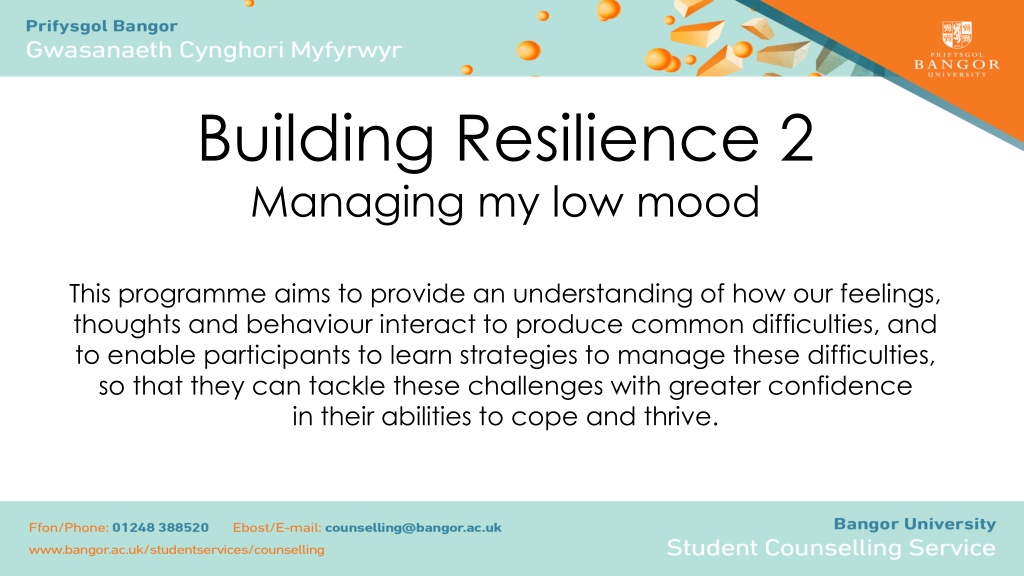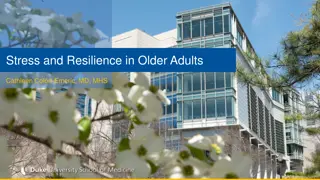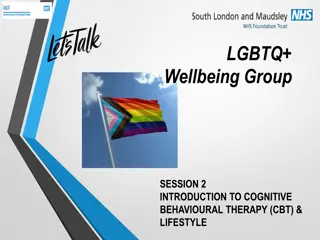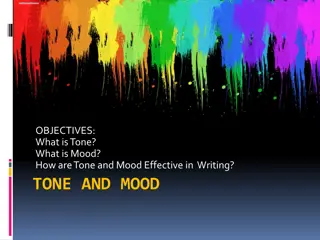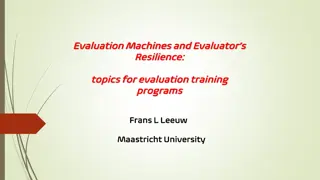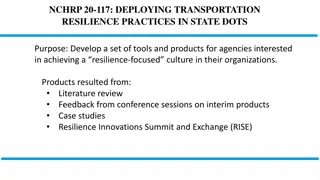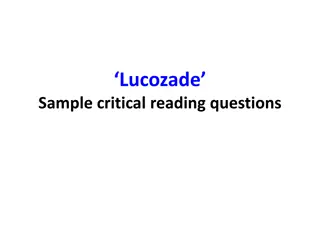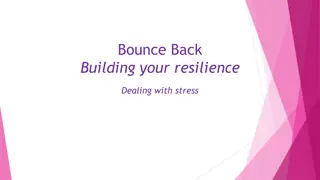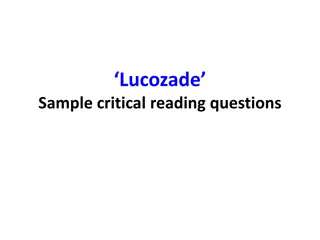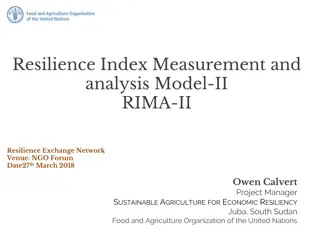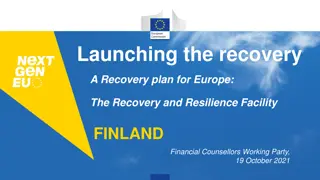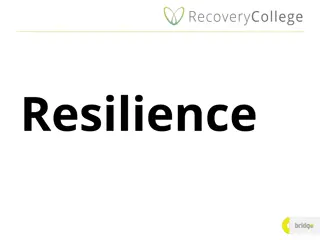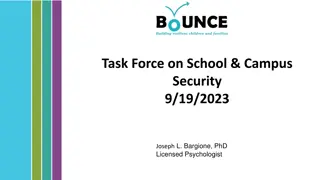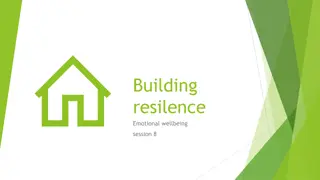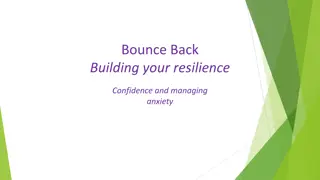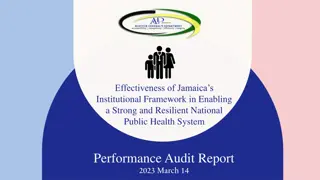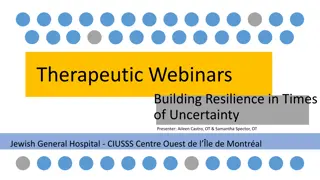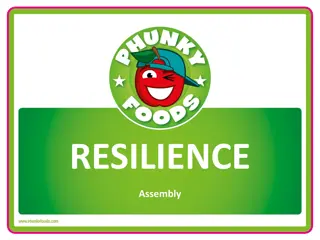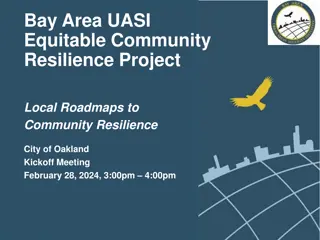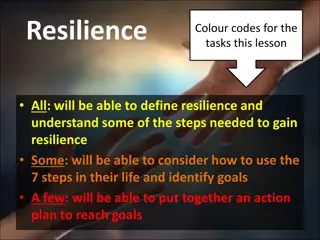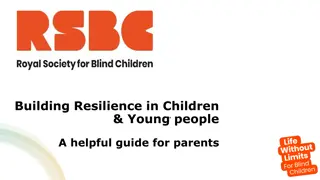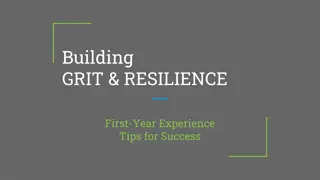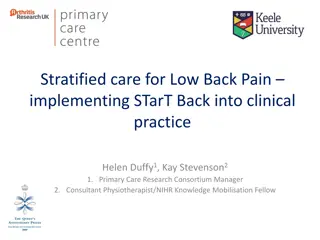Understanding and Managing Low Mood for Resilience Building
This program aims to help participants understand the factors contributing to low mood, recognize its signs and symptoms, explore potential causes, and learn strategies to manage and overcome challenges, ultimately fostering resilience and well-being. Topics covered include negative thinking patterns, emotional responses, and behavioral adaptations to improve mental health.
Download Presentation

Please find below an Image/Link to download the presentation.
The content on the website is provided AS IS for your information and personal use only. It may not be sold, licensed, or shared on other websites without obtaining consent from the author. Download presentation by click this link. If you encounter any issues during the download, it is possible that the publisher has removed the file from their server.
E N D
Presentation Transcript
Building Resilience 2 Managing my low mood This programme aims to provide an understanding of how our feelings, thoughts and behaviour interact to produce common difficulties, and to enable participants to learn strategies to manage these difficulties, so that they can tackle these challenges with greater confidence in their abilities to cope and thrive.
Building Resilience 2 iCan manage my low mood
Signs and symptoms Loss of focus/ concentration/ motivation. Difficulty in getting up in the morning. Sleep problems. Seeing no point in anything. Feelings of worthlessness. Tearfulness. Loss of appetite - or comfort eating. Withdrawing from usual activities, hobbies, friendships.
What can cause low mood? No one cause- A reaction to loss (not just bereavement)? Anger turned inwards? Cycle of negative thinking? A chemical change in the brain?
The Downward Spiral of low mood (Ester & Graham Hicks 2010)
5 key areas: People and events around us Critical/unhelpful thoughts Altered feelings Physical feelings Behaviour and activity levels
Negative thinking Default mode of the brain - research shows that when the brain has nothing specific to do it tends to revert to looking for problems to solve and seeking out difficulties. Ruminative thinking. Automatic negative thoughts. Gathering evidence to support a negative view. Preoccupation with the past; Self criticism. Getting depressed about feeling depressed. Yes, but responses.
Feeding the Wolf! An old Cherokee chief was teaching his grandson about life... "A fight is going on inside me," he said to the boy. "It is a terrible fight and it is between two wolves. "One is evil - he is anger, envy, sorrow, regret, greed, arrogance, self-pity, guilt, resentment, inferiority, lies, false pride, superiority, self-doubt, and ego. "The other is good - he is joy, peace, love, hope, serenity, humility, kindness, benevolence, empathy, generosity, truth, compassion, and faith. "This same fight is going on inside you - and inside every other person, too." The grandson thought about it for a minute and then asked his grandfather, "Which wolf will win?" The old chief simply replied, "The one you feed. Author unknown.
Breaking into the Spiral Acceptance and self compassion Behavioural activation Challenging negative thinking Developing support systems Having a routine Developing an observing self Small steps
Activation comes before motivation: Fake it till you make it Feel the fear and do it anyway Keep calm and carry on
ho Challenging negative thoughts- Thought Record sheet.
What might work for you? Set realistic goals. Plan ahead. Involve someone else. Acknowledge that small simple tasks are valuable. Regular doses are most helpful. What gives you pleasure/achievement/ closeness?
Write down your three first steps. 1 2 3 ...
Resources available: - Use support systems available within the University. Academic support - personal tutors, subject tutors, Dyslexia Service, Study Support Service Student Support - Disability Services, Money Support Student Union Services - Learn more about low mood and ways to overcome it. Attend Building Resilience workshops - see Counselling Service website Learn Mindfulness Meditation. https://www.bangor.ac.uk/mindfulness/audio/index.php.en Look at self help links on Counselling Service website Look at online resources. This Workshop attracts BEA points.
